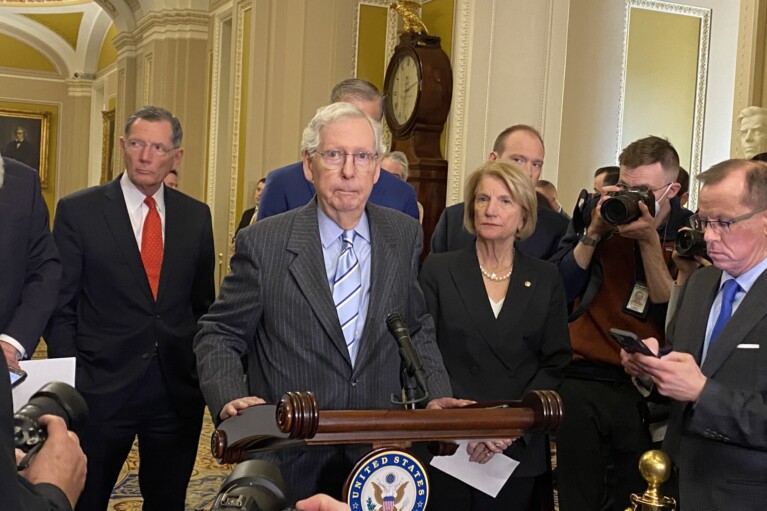Ficker in the Legislature: Broken Microphones, Krazy Glue and Marathon Amendment Battles

If Robin Ficker (R) wins the three-way battle for Montgomery County executive, his victory will serve as a bookend to his only other political win, one that came 40 years ago.
In 1978, Ficker, then a 35-year-old attorney and Republican activist, was elected to the Maryland House of Delegates from District 15B in the Upcounty.
His four-year tenure in Annapolis was, according to people who were there, marked by the behavior he would exhibit in the ensuing four decades as a lawyer, civic gadfly and notorious sports heckler — full of publicity stunts, stubbornness, self-defeating antics, alienation and, ultimately, defeat. Montgomery County voters ousted him after one term, and they’ve been saying no ever since.
“He was strange even back then,” recalled former Montgomery County executive Sidney Kramer (D), who entered the state Senate at the same time Ficker entered the House.
Ficker did not respond to a phone call requesting comment about his four-year tenure in Annapolis. He has sought office 18 times since his sole victory in 1978, losing every contest.
But even then, colleagues remarked on Ficker’s unconventional behavior.
“When he was elected he had a chance to wipe the slate clean,” then-state Sen. Howard Denis (R-Montgomery) told Washington Post reporter John Feinstein in 1982. “But he’s come down here and just run amok from the start.”
“He’s like one of those fish skeletons you see with everything on the outside that should be inside,” Denis continued. “We’ve all got a little Ficker in us, but to survive in society, you have to keep those things inside.”
According to media accounts and interviews with people who served in Annapolis during his term, Ficker developed several traits that alienated his colleagues.
A Republican in a legislature dominated by Democrats, he would slow the budget process by offering numerous amendments on the House floor, each one going down to resounding defeat. This created much make-work for staff, a lawmaker said.
Early in his term, Ficker went from office to office to get the private phone numbers that lawmakers gave to family members. He then published the numbers in a directory, along with photographs of State House lobbyists, a public service that endeared him to no one.
He shared an office suite with fellow Republican Dels. Constance A. Morella and Luiz Simmons (Morella went on to serve 16 years in Congress, and Simmons returned to the legislature after a long hiatus in 2003 as a Democrat). He insisted that his name plate be atop theirs, even though Morella was the top vote-getter in the 1978 election. Tired of seeing his name repeatedly returned by someone (it’s not clear whom) to the bottom groove, Ficker took a tube of Krazy Glue and permanently sealed it where he wanted it, on the first row.
As his reputation worsened, lawmakers would beg him not to speak in favor of their bills, for fear his support would cost more votes than it won them.
The Post reports that, in one instance, then-Del. Timothy Maloney (D-Prince George’s) broke Ficker’s floor microphone to stop him from advocating for a measure he had sponsored.
Then-House Speaker Benjamin L. Cardin (D) sent Maloney a mock bill for the damaged property. He also expressed a willingness to contribute to any future campaign Ficker might embark upon — as long as it was not re-election to his House seat.
Ficker’s colleagues didn’t think he lacked intelligence. It was his obsession with publicity that drove them nuts.
“Who takes Ficker seriously?” asked then-Del. Frank Pesci (D-Prince George’s). “Mrs. Ficker. Actually, Robin’s very bright. A lot of us down here would like to take him seriously. But he’s so bizarre he won’t let us.”
“He lives by a simple credo of legislating,” Simmons said at the time. “It’s called the ‘as long as they spell the name right, it’s great’ method. We all like publicity. But with Robin, it’s out of control.”
Word of Ficker’s antics soon reached his constituents back in Montgomery County.
Gene M. Counihan, a resident of Montgomery Village and a member of the Montgomery County Democratic Central Committee, recalled being urged to take him on.
“We’re poor in facilities up here and I was going to Annapolis and going to Rockville, trying to get things for the community,” Counihan told Maryland Matters this week. “And I increasingly became aware of what a joke he was.”
Ficker’s biggest impact as a legislator may have come on a measure on which he voted no after pledging support.
According to the Post, Ficker, who would occasionally go running along the National Mall in Washington, D.C., with boxer Muhammad Ali when the champ was in D.C. training for a fight, pledged to support a D.C. voting rights amendment that was making its way around the country.
Backers, including then-D.C. congressional Del. Walter Fauntroy (D), had reason to believe Ficker was with them.
As the Post reported: “They knew, after all, that it was this same Robin Ficker who jogged around the monuments of Washington with Fauntroy three years ago in a publicity marathon for voting rights and then, in the summer of 1976, carried a scroll supporting the same cause in the first leg of a marathon from Washington to the Democratic convention in New York.”
The measure, which had breezed through the Senate and a House committee, got to the floor, however, Ficker voted no. The result: a 70-70 tie, leaving the measure one vote shy of the 71 needed for passage.
On the steps of the State House, Ficker told reporters his constituents opposed the measure and he didn’t want to cast a vote counter to their beliefs.
Ali figures in another Ficker anecdote from an Annapolis denizen during that era — this one about Ficker excitedly pulling a Post reporter out of a Montgomery County delegation meeting early one Friday morning because Ali was on the phone in his office, and he wanted to prove it to her.
Counihan defeated Ficker in 1982. The Democrat said he was greeted as a hero when he arrived in Annapolis, by lawmakers from both parties.
“They called me the Ficker Kicker. They said ‘thank you for replacing him, this place will be a lot more sane without him.’”




 Creative Commons Attribution
Creative Commons Attribution